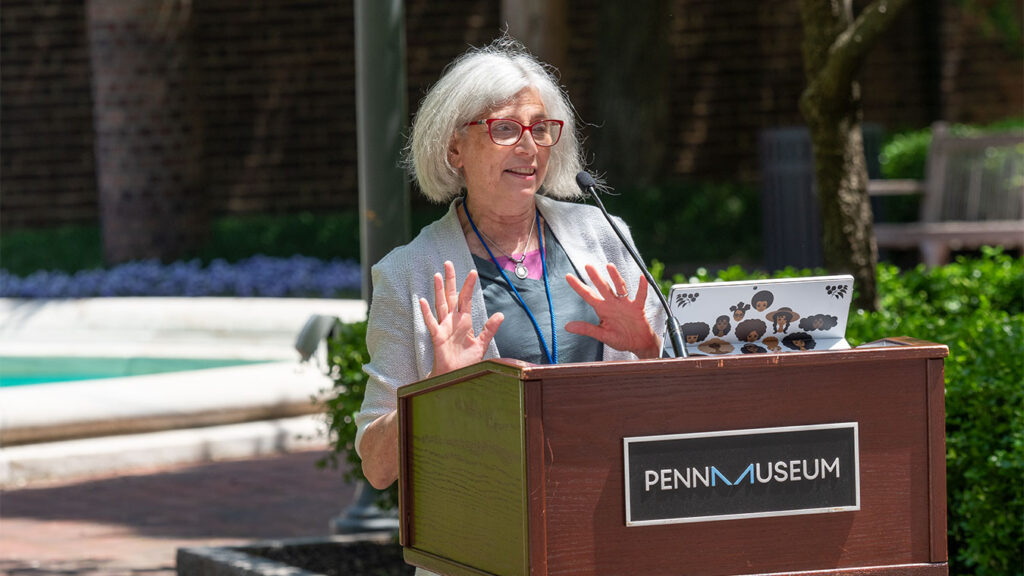
Analysis of the Rural Health Transformation Program
Memo: Response to Request for Analysis
News

The fact that LDI Senior Fellow Meghan Lane-Fall, MD, was a mentee of the late Sandy Schwartz made her appearance all the more poignant as the speaker at the May 12 inaugural J. Sanford (Sandy) Schwartz Memorial Young Investigator Grand Rounds. Organized by the Penn Medicine Division of General Internal Medicine, the event was held in the courtyard of the Penn Museum as well as broadcast via Zoom to a broader virtual audience. The gathering honored the memory and five decades of work of the late Schwartz, a highly-respected and beloved Professor of Medicine and Health Care Management at the Perelman School of Medicine and The Wharton School. Schwartz, 72, a former Executive Director of the Leonard Davis Institute of Health Economics (1989-1998), died a year ago.

Opening the event was Judith Long, MD, LDI Senior Fellow and Chief of the Penn Medicine Division of General Internal Medicine, who shared her own fond memories of Schwartz, a long-time member of the Division’s research Faculty.

Featured guest Sue Schwartz looked back on her husband’s early years when he was persuaded by LDI Senior Fellows and Penn Medicine professors John Eisenberg, MD, and Sankey Williams, MD, of the then-developing Division of General Internal Medicine to stay at Penn rather than move to the west coast for another position he had already accepted. “If you knew Sandy, you know that this 12th-hour shift comes as no surprise,” said Mrs. Schwartz. “John, Sankey and the visionary Sam Martin literally changed the direction of our lives overnight. Their guidance and support reoriented Sandy’s professional course for the better. Among other things, it made him realize the value and long-term impact mentorship can provide. Mentorship became Sandy’s passion as well as his gift throughout the rest of his career. He took such satisfaction in helping others achieve their goals, then taking a backseat to watch as they pursued their professional paths. He liked to say, ‘You know when you’ve been successful when you begin working for one of your mentees.'”

Speaking on evidence-based medicine and implementation science in the service of equity, Lane-Fall discussed the issue of how accurate implementation science research evidence is without input from the impacted community. “We have to respect lived experience,” she said. “We need to listen to the communities and not think of ourselves as the sole creators of knowledge.” Another issue was the innovative breakthroughs in health care that are widely hailed as triumphs of science yet involve technologies and delivery methods of such complexity and high cost that they are largely unavailable to the underresourced populations that may need them most. “We have to begin asking ourselves about how emerging technologies may be likely to worsen inequities,” she said. “As we’re developing these technologies, we have to be asking: ‘How can we be sure they will get to places that are underresourced?'” Lane-Fall is Associate Professor and Vice Chair of Inclusion, Diversity, and Equity for the Perelman School Department of Anesthesiology and Critical Care, Director of Acute Care Implementation Research at the Penn Implementation Science Center at LDI, and the Founding Co-Director of the Center for Perioperative Outcomes Research and Transformation.


Memo: Response to Request for Analysis

Lessons from the Past, Imperatives for the Future

A New Study of a Sample of Facilities Found Half Without Any Behavioral Health Staff

Physicians Were Paid About 10% Less for Visits Involving Black and Hispanic Patients, With Pediatric Gaps Reaching 15%, According to a First-of-Its-Kind LDI Analysis

A New Review Finds Hospital Mergers Raise Prices Without Improving Care, and Urges Regulators to Stop Accepting Quality Claims to Justify Consolidations

Technology Helps Older Adults Stay at Home—But May Delay Necessary Transitions to Higher Levels of Care